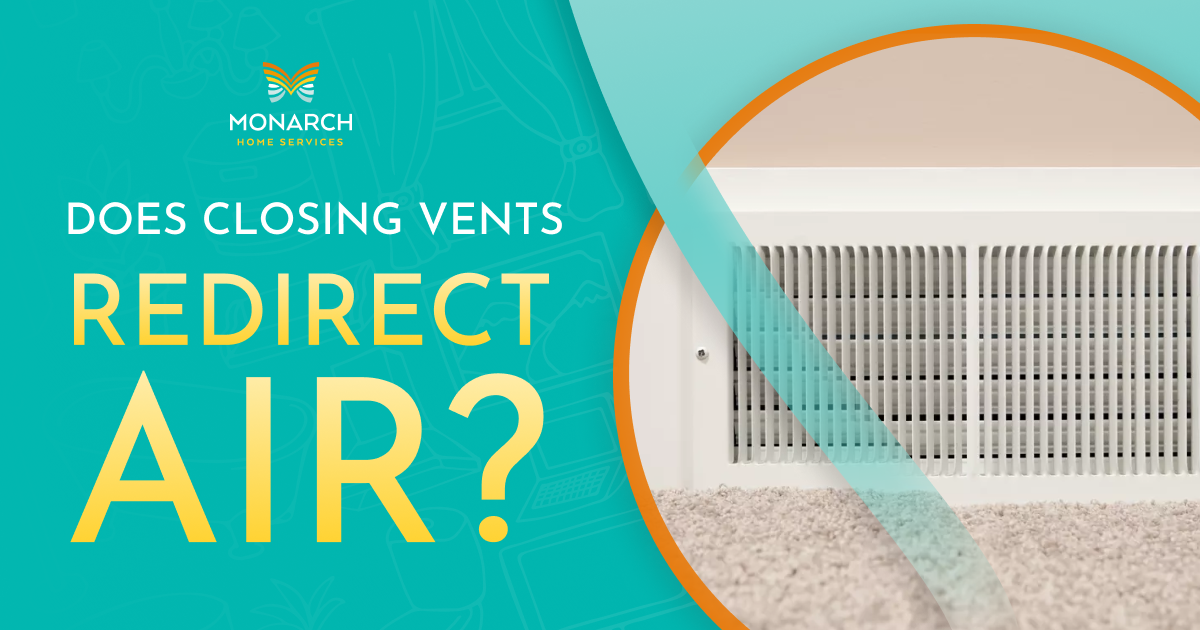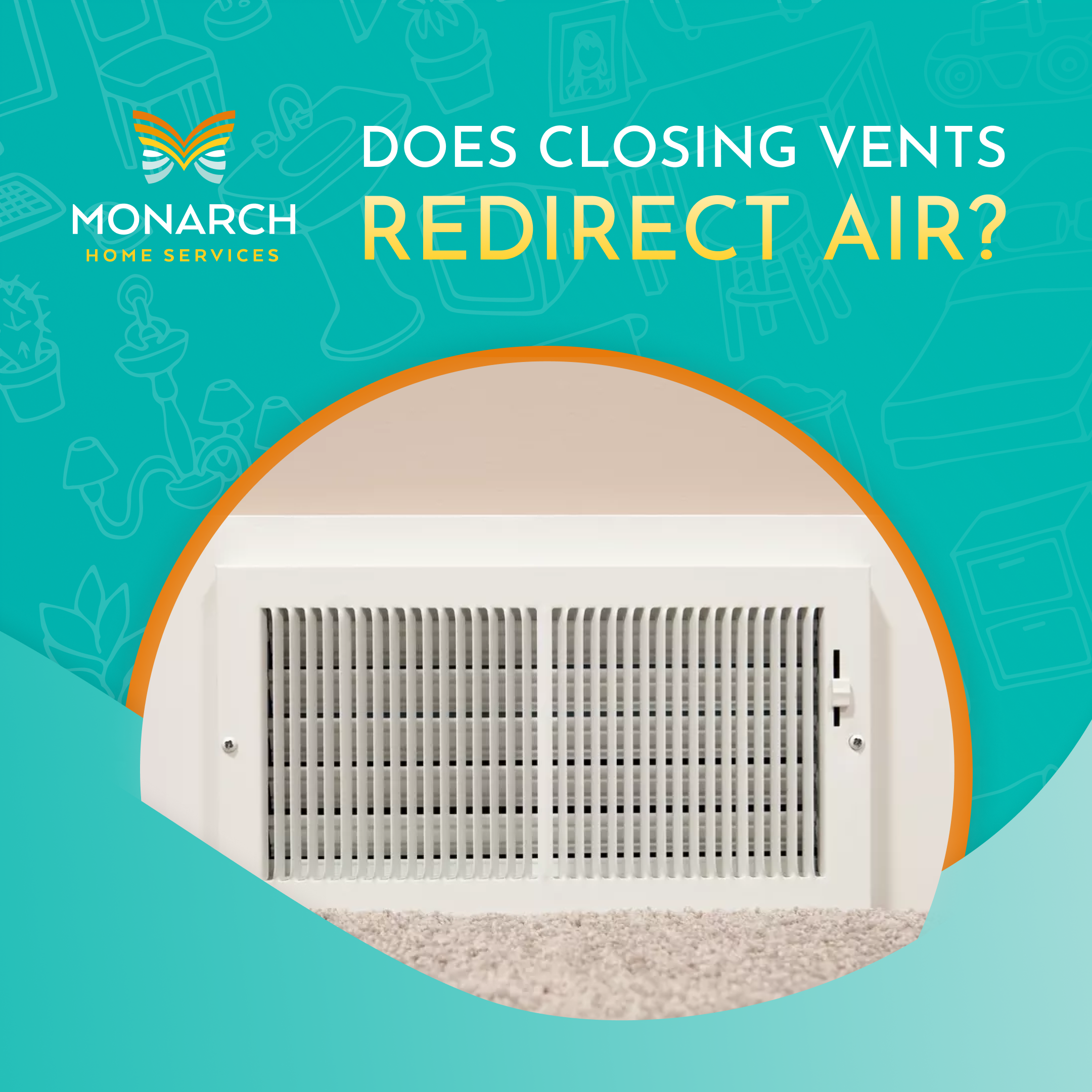
Many homeowners believe closing air vents redirects airflow to hot or cold rooms. It’s also a common belief that closing vents helps conserve energy. But in reality, the practice has few, if any, benefits and can do more harm than good. To answer the question, “Does closing vents redirect air?” we’ll explain if it does and what the consequences may be.
Closing Vents Doesn’t Redirect Air Properly
Closing vents redirect airflow but not to specific rooms. Instead, the air is redirected to different parts of your ductwork, increasing the pressure within. This can cause damage and duct leaks. Conditioned air can then escape to the outside or unconditioned areas like attics or basements.
The Side Effects of Closing Vents
Air ducts have a specific volume. Therefore, increasing air pressure can put a great deal of stress on duct walls. While trunk lines can handle more air, supply runs (which contain dampers) are smaller and thus more prone to airflow issues due to closing off lines. The results may include:
- Longer Cycling: With heated or cooled air leaking into unconditioned zones, a furnace or air conditioner will run longer to compensate for lost heating/cooling. In turn, this leads to increased energy costs.
- High Static Pressure: High static pressure strains the blower motor and limits the amount of return air, causing HVAC equipment to be overworked; this increases the risk of damage or a breakdown.
- Overheated Heat Exchanger: If the volume of return airflow is insufficient, a furnace’s internal temperature can get too high. Closing supply air vents can cause the heat exchanger to overheat, leading to cracks and carbon monoxide leaks.
- Frozen AC Coils: A lack of airflow, for any reason, can cause air conditioner coils to freeze. In turn, refrigerant leaks and compressor damage may occur. Therefore, closing vents can lead to costly repairs and replacements.
Closing Vents Won’t Improve Airflow In Other Rooms
It can have the opposite effect. If there’s a duct leak, parts of your home can lack heating or cooling. Heat energy is also naturally drawn toward colder areas. So, if you have a cold room, the heat your furnace has worked to produce can pass through uninsulated interior walls. An AC will also work harder, as cold air will escape via leaks and be replaced by ambient heat.
Can I Partially Close the Vents?
Air duct dampers are designed to partially close to adjust airflow rather than block it. By not creating an airtight seal, these dampers minimize the strain on the system. In summer, you can close the dampers downstairs so cooler air reaches upstairs rooms. But in winter, closing upstairs vents halfway allows heat to rise.
A zoned AC system may have separate air duct trunks for the downstairs and upstairs. These lines can be controlled by separate thermostats. Another option is to connect automatic dampers to a smart thermostat.
But not every house is built for zoning. To create zones in a traditional HVAC system, you need to figure out which supply lines go where and add dampers (the more zones you create, the more dampers you’ll need). Adding automatic dampers also requires installing wiring and a “dump zone” where dampers can automatically open and release air, protecting the system from high static pressure.
Importance of a Professional HVAC Evaluation
If you need to frequently open and close vents, your AC or furnace may be the wrong size. Or, air ducts may need to be resized or reconfigured. But the issue could also be a faulty blower motor or one that’s the wrong capacity. For these reasons, the system should be evaluated to determine if a repair, upgrade, or replacement is necessary.
Contact Monarch Home Services
We’re a trusted provider of residential indoor air quality services in Central California. If you’re still wondering, “Does closing vents redirect air and save energy?” we can further explain the reasoning and offer solutions to improve comfort and efficiency. Our licensed professionals can also provide duct cleaning, duct sealing, or a new duct system. Call (661) 215-6745 to schedule service and receive your free quote.


